
I came about MCT oil when trying to lose some weight.
Just like many people out there, weight loss or fat loss is the end goal.
We want to live longer and healthier lives. Well, I did not give it much attention.
Being a massive fan of bulletproof coffee, and having tried making my favorite coffee with heavy cream, stevia glycerite, and collagen at different times, I decided to fortify my breakfast with a tiny bit of best MCT oil.
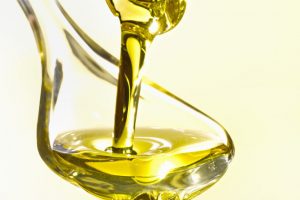 So, ever since I have not looked back.
So, ever since I have not looked back.
MCT oil has substantial health benefits, and it is readily available in stores today.
It has become a staple supplement for many dieters.
Improving brain power, satiety, metabolism, endurance, and energy, is how you can benefit from MCT oil. Also, I will discuss its side effects.
MCT Oil Health Benefits
MCT or Medium Chain Triglycerides are mostly extracted from coconut, about 50% of the coconut oil fats come from MCTs.
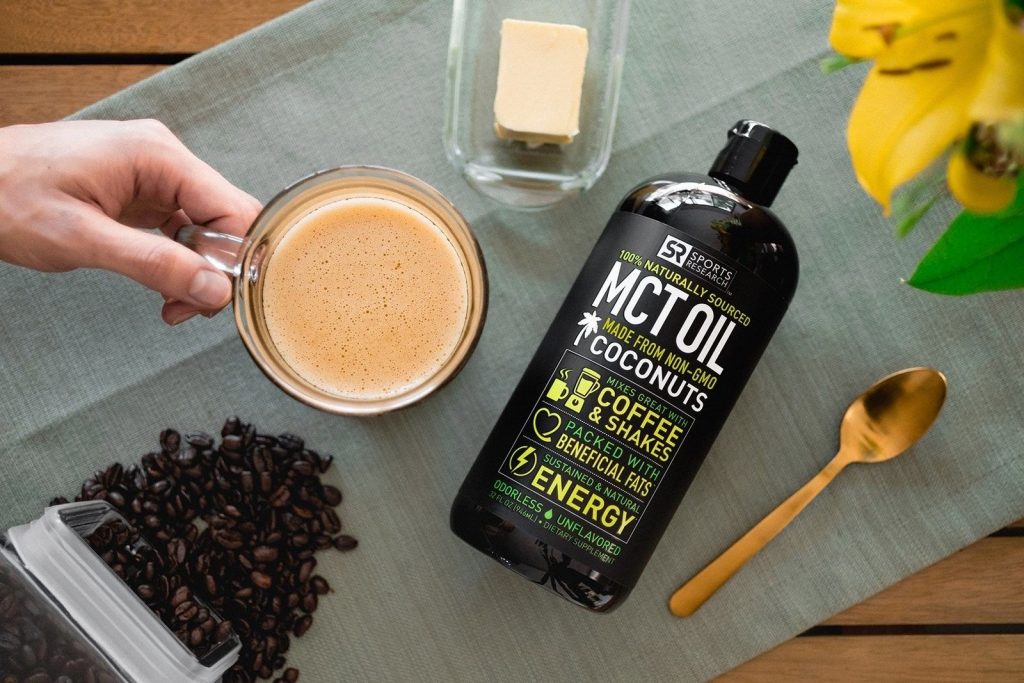
It contains fewer calories differentiating it from other long-chain triglycerides (LCTs).
They are fatty acids that do not require assimilation, digestion, enzymes, or bile, they take a shortcut to the liver and stimulate the cells to produce alternative fuels like ketones.
It is recommended you take it daily either by drinking or cooking it.
Promotes Weight Loss
MCT oil is beneficial when trying to lose weight, studies have shown it increases the release of two hormones leptin and peptide YY which stimulate fullness feeling in the body.
 Furthermore, MCT Oil will keep you full according to a study that reported that people who incorporated two tablespoons of MCT oil in their daily breakfast ate less food for lunch when compared to another experimental group taking.
Furthermore, MCT Oil will keep you full according to a study that reported that people who incorporated two tablespoons of MCT oil in their daily breakfast ate less food for lunch when compared to another experimental group taking.
The study further found a lower rise in glucose and triglycerides with MCT oil, which stimulate the feeling of fullness.
Additionally, MCT oil has been reported to reduce waist circumference and body weight significantly, and it is recommended to prevent obesity.
Instant Energy Source to Refuel the Brain
MCT oil is a super fuel; this is because of the body's ability to absorb MCTs faster than any long-chain (LCTs).
LCTs have more carbon compounds in their fatty acid chains.
 MCTs take a shorter route to the liver, requiring none of the associated processes of assimilation, digestion, enzymes for catabolism like LCTs do.
MCTs take a shorter route to the liver, requiring none of the associated processes of assimilation, digestion, enzymes for catabolism like LCTs do.
MCTs in the liver serve as body fat or fuel, and are absorbed by the body cells without breaking down; they serve as an instant energy source.
Are you on a ketonic diet? In the liver, the MCTs change to ketones.
They serve as an accessible source of fuel for your brain cells as they can pass through the blood-brain barrier without inhibition.
Help Convert Fat to Energy As Well As Reduce Lactate Build-Up in Athletes
MCT oil is popular among athletes. A rising lactate level during exercises can prevent performing at a high level.
A Study has shown MCTs can prevent lactate build-up.

This study reported that athletes who took about 1.5 teaspoons or 6 grams of foods with MCTs before cycling recorded lower lactate levels, had better exercise performance compared to a group taking LCTs.
Additionally, the study also discovered that fats instead of carbs are used for energy when taken before exercise.
Contains Fatty Acids That Fight Bacteria and Yeast Growth
MCTs have antifungal and antimicrobial properties.
Coconut oil which is made up of a vast amount of MCTs can prevent the growth of Candida albicans.
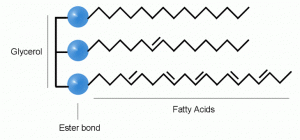 This yeast is notoriously known for causing thrush and several skin infections.
This yeast is notoriously known for causing thrush and several skin infections.
The growth of Clostridium difficile a disease-causing bacterium was reduced using coconut oil.
The pathogen-reducing ability may be due to the presence of lauric acid, capric, and caprylic acid in MCTs.
Furthermore, this study report showed the effectiveness in inhibiting the growth and spread of fungus in hospitals.
Potential Side Effects Of MCT Oil
MCT oil is generally considered safe. The following are possible side effects.
May Stimulate the Production of Hunger Hormones.
MCT oil boost the feeling of fullness in some people while encouraging the production of hunger hormones in others.
 According to a study on people suffering from anorexiaMCT was discovered to stimulate the release of two hormones neuropeptide Y and ghrelin which stimulate appetite.
According to a study on people suffering from anorexiaMCT was discovered to stimulate the release of two hormones neuropeptide Y and ghrelin which stimulate appetite.
The experimental group taking 6 grams of MCTs and above produces more of these hormones compared to those on 1 gram or less per day. Nevertheless.
There is no scientific information linking the increased production of these hormones to eating more.
MCTs Can Lead to Fat Build Up in the Liver
Supplementing your breakfast with a large amount of MCT oil can increase fat deposition in your liver.
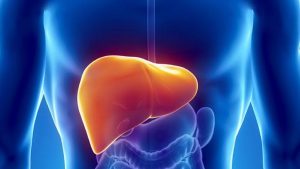 A study in mice for 12 weeks discovered that consuming a diet that contains 50% fats from MCTs increased liver fat.
A study in mice for 12 weeks discovered that consuming a diet that contains 50% fats from MCTs increased liver fat.
The study also reported a reduction in total body fat and improvement in insulin resistance.
Please note, do not take MCT oils beyond the recommended, more research is needed to unravel its long-term effects.
Keep to one or two teaspoons per day, and supplement not replace your daily fat intake, there will be no fat build-up in your liver.
MCT Oil vs Coconut Oil
As you can see from the photo, there are many differences between coconut oil and adding MCT oil. For instance, MCT oil has a higher concentration of medium-chain fatty acids, long-chain triglycerides. While saturated fat tends to be high in lipid, medium-chain fats like these have a bigger influence on weight management. Some studies say that they are beneficial for healthy eating, while others suggest that they increase the risk of heart disease. This is why I don’t recommend them for weight loss. Although you can certainly use them if you’re trying to lose weight. In fact, you can probably even eat lots of them without weight gain.
Depending on which medical study you’re reading, coconut is either the most destructive evil on earth or an age-old wonder product. Anecdotal evidence continues to support that coconut increases “bad” LDL cholesterol while at the same time reducing “good” HDL cholesterol. At least one reputable study, by Mary Jane Healey of Stanford University, found that replacing saturated fats with coconut increases your “bad” LDL cholesterol. There is also some evidence that coconut increases your “good” HDL cholesterol. Some scientists have also suggested that at a certain point, coconut oil’s increase in LDL cholesterol levels will offset any effects you’re receiving from its reduced “bad” HDL cholesterol.
Why is MCT Oil Good in the Morning?
There are two important nutrients present in MCT oil that are extremely beneficial to the body. They include carbohydrates and fat. By consuming these two key nutrients in the morning, a person can maximize the amount of energy they will have for the day ahead. They will also be less likely to experience side effects or have a crash in energy. In addition, a person will also have access to these nutrients throughout the day. This means they are unlikely to experience a rise in blood sugar levels which can negatively impact a person's mood. In fact, research has suggested that it is possible to reduce blood sugar levels by 2.5 times with MCT oil.
For many people, an important part of their diet involves protein. It is the primary source of energy for the body in the morning. Therefore, having protein in the morning is essential for lasting energy levels throughout the day. There are many proteins shakes available on the market that can be used as an energy source. This is particularly the case with MCT Oil, which is very high in carbohydrates. Therefore, it is an ideal energy source for a person with a poor appetite who is looking for the most energy possible for the day ahead. It is worth noting that it is necessary to combine protein with energy in order to achieve the best results.
Will MCT Oil Make You Fat?
According to the American Heart Association, the primary goals of dietary guidelines should be to help prevent and control high blood pressure, reduce the risk of stroke and death from heart disease, and lower blood sugar and high cholesterol levels. Eating lots of processed and refined foods with little to no fiber, and avoiding foods high in nutrient-rich fruit, vegetables, and whole grains, will certainly cause you to gain weight, and possibly go on to develop metabolic syndrome.
One potential answer to achieving these goals is to include small amounts of fish and vegetable oils in your diet, alongside additional moderate amounts of fruit and vegetables. These oils not only help reduce your risk of heart disease and diabetes but they can also.
Does MCT Oil Help You Lose Weight?
A lot of women have already heard of MCT oil or fatty acids. While there are various products that are manufactured to contain this type of oil, the most effective product so far has been LELO's MCT Oil and there is no doubt about that. It can help you lose weight in the best way possible and there are various things that you need to keep in mind about it so that you don't waste your time and money.
Before we get into the details about MCT Oil, let's just take a minute to learn a little bit more about what it is. This is just to make sure that you are not trying it in the wrong way or something that is not mentioned in the product instructions, which is always a bad idea.
How to Use MCT Oil and Does it Work?
- Take MCTs as recommended by your doctor.
- Specific MCT oil goes with drink or food. Ask your doctor if you are in doubt.
- You may need to shake MCT oil before use.
- Ensure you read the instructions before use.
MCT oil is a unique fatty acid found in foods such as palm oil and coconut.
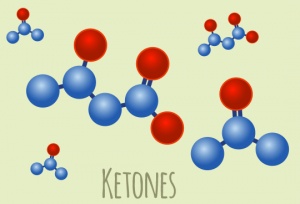 It is a medium-chained polymer that requires none of the processes of assimilation, bile, or enzyme activities to be absorbed.
It is a medium-chained polymer that requires none of the processes of assimilation, bile, or enzyme activities to be absorbed.
Is MCT Oil Anti-Inflammatory?
"MCT oil has shown promise as a potential anti-inflammatory agent, although its effects may vary depending on various factors such as dosage, individual metabolism, and overall diet. Medium-chain triglycerides (MCTs) are a type of saturated fat that are found naturally in coconut oil, palm kernel oil, and dairy products."
Research suggests that MCT oil may have anti-inflammatory properties due to its ability to modulate inflammatory pathways in the body. Inflammation is a natural immune response that helps protect the body against harmful stimuli, such as pathogens or tissue injury. However, chronic inflammation has been implicated in the development of various chronic diseases, including cardiovascular disease, diabetes, and certain autoimmune conditions.
Studies have indicated that MCTs can exert anti-inflammatory effects by several mechanisms. Firstly, MCTs have been shown to inhibit the production of pro-inflammatory cytokines, such as tumor necrosis factor-alpha (TNF-alpha) and interleukin-6 (IL-6), which are involved in promoting inflammation.
Secondly, MCTs may help enhance the production of anti-inflammatory compounds, such as the omega-3 fatty acid-derived lipid mediators known as resolvins and protectins. These compounds play a crucial role in resolving inflammation and promoting tissue repair.
Moreover, MCTs have been shown to modulate gut microbiota composition, which can influence systemic inflammation. By promoting the growth of beneficial gut bacteria and reducing the abundance of pro-inflammatory microbes, MCTs may help maintain a healthy balance in the gut microbiome and mitigate inflammation.
Additionally, MCTs are readily converted into ketones by the liver, which can serve as an alternative energy source for cells, particularly in conditions associated with inflammation, such as neurodegenerative diseases. Ketones have been shown to possess anti-inflammatory properties and may help protect against neuronal damage and inflammation in the brain.
However, it's important to note that while MCT oil may have anti-inflammatory effects, it should not be viewed as a standalone treatment for inflammatory conditions. Rather, it can be incorporated into a comprehensive approach to managing inflammation, which includes a healthy diet, regular exercise, stress management, and appropriate medical treatment when necessary.
Furthermore, the anti-inflammatory effects of MCT oil may vary depending on individual factors such as dosage, frequency of consumption, and overall dietary patterns. More research is needed to fully elucidate the potential benefits of MCT oil for inflammation and its role in the prevention and treatment of inflammatory diseases.
How to Use MCT Oil for Weight Loss?
MCT oil is a unique type of fat that the body can metabolize more efficiently than long-chain fats, making it a valuable tool in weight management. Here's how to use MCT oil for weight loss:
- Start Slowly: If you're new to MCT oil, introduce it gradually into your diet. Begin with a teaspoon or less and gradually increase the dosage to minimize digestive discomfort.
- Replace Unhealthy Fats: Replace other cooking oils and fats in your diet with MCT oil. Its high smoke point makes it suitable for cooking and baking, but avoid using it for deep frying.
- Use It as an Appetite Suppressant: MCT oil can help control hunger by promoting the release of hormones that signal fullness. Consuming it with a meal can lead to reduced calorie intake.
- Incorporate MCTs into Your Morning Routine: Add MCT oil to your morning coffee or tea. This combination, often referred to as "bulletproof coffee," can provide sustained energy and may help reduce cravings.
- Timing Matters: Consuming MCT oil before a workout may enhance your exercise performance and fat-burning potential, thanks to the quick energy it provides.
- Be Mindful of Total Calories: While MCT oil can aid in weight loss, it's calorie-dense. Be mindful of your overall caloric intake and ensure that it fits into your daily calorie goals.
- Maintain a Balanced Diet: MCT oil should be part of a balanced diet rich in whole foods. It's not a magic solution for weight loss; rather, it complements a healthy eating plan.
- Consult a Healthcare Professional: Before adding MCT oil to your weight loss regimen, consult with a healthcare professional, especially if you have any underlying health conditions.
Remember that while MCT oil can support weight loss efforts, it's most effective when combined with a holistic approach that includes a balanced diet, regular physical activity, and lifestyle choices that promote overall health.
It is readily converted to ketones and is an excellent source of brain fuel.
Supplementing your breakfast with MCT oil for a healthy life is a great idea.
Just think about all the health benefits of MCT oil, olive oil to your diet and the difference it would make.